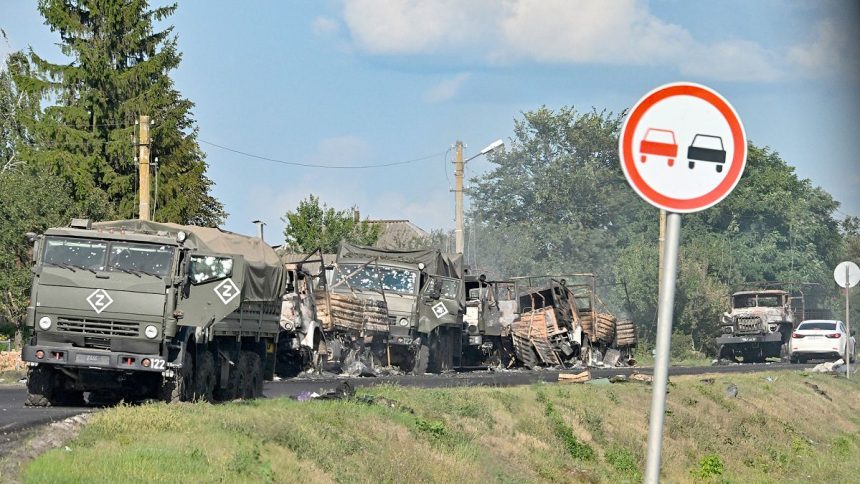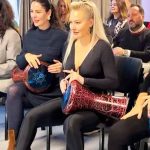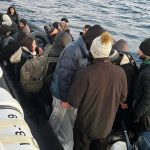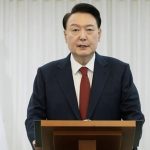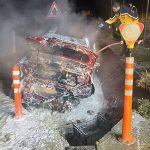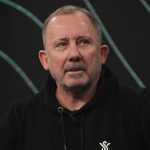Ukraine has claimed control of about 1,000 square kilometres of Russian territory as Kyiv presses on with its biggest cross-border incursion.
Army chief Oleksandr Syrskyi said on Monday that Ukraine continues to conduct an offensive operation in the Kursk region seven days after it began.
The top military commander said his forces now control a considerable area of Russia’s neighbouring region across the border from Sumy, the first time a Ukrainian military official has publicly commented on the gains of the lightning incursion that has embarrassed the Kremlin.
“The troops are fulfilling their tasks. Fighting continues, actually, along the entire front line. The situation is under our control,” Syrskyi said in a video posted Monday to Ukrainian President Volodymyr Zelenskyy’s Telegram channel.
His claims were backed up by the governor of the Kursk region, who acknowledged that Ukrainian mobile groups advanced 12 km deep and 40 km wide into Russian territory.
Alexei Smirnov claimed that Kyiv’s forces now control 28 settlements with a population of around 2,000 people.
He also said 12 civilians have been killed and 121 others, including 10 children, have been wounded. About 121,000 people have been evacuated or left the areas affected by fighting on their own, he added.
Smirnov claimed that tracking down all the Ukrainian units roaming the region and creating diversions is difficult, noting that some are using fake Russian IDs. None of the claims could be independently confirmed.
The governor of the Belgorod region adjacent to Kursk also announced the evacuation of people from a district near the Ukrainian border.
Moscow forces are still scrambling to respond to the surprise Ukrainian attack after almost a week of fierce fighting.
Russian President Vladimir Putin said the incursion, which has caused more than 100,000 civilians to flee, is an attempt by Kyiv to stop Moscow’s offensive in eastern Ukraine’s Donbas region and gain leverage in possible future peace talks.
Zelenskyy acknowledged for the first time that the Ukrainian military is inside the Kursk region.
On Telegram, he praised his country’s soldiers and commanders “for their steadfastness and decisive actions.” He did not elaborate.
The Ukrainian operation is under tight secrecy, and its goals remain unclear. The stunning manoeuvre that caught the Kremlin’s forces off guard counters Russia’s unrelenting effort in recent months to punch through Ukrainian defences at selected points along the front line in eastern Ukraine.
Putin vows Moscow’s army will prevail
Speaking Monday at a meeting with top security and defence officials, Putin said the attack that began on 6 August appeared to reflect Kyiv’s attempt to achieve a better negotiating position in possible future talks to end the war. He insisted that Moscow’s army would prevail.
Putin said Ukraine may have hoped the attack would cause public unrest in Russia but that it has failed to do so, and he claimed the number of volunteers to join the Russian military has increased because of the assault.
He said Moscow forces will carry on with their offensive in eastern Ukraine.
“It’s obvious that the enemy will keep trying to destabilise the situation in the border zone to try to destabilise the domestic political situation in our country,” Putin said.
Russia’s main task is to “drive the enemy out of our territories and, together with the border service, to ensure reliable cover of the state border.”
‘War is coming home’
Zelenskyy said the territory now controlled by Ukrainian forces was used to strike Ukraine’s Sumy region many times, adding that it is “absolutely fair to destroy Russian terrorists where they are”.
“Russia brought war to others. Now it is coming home,” he said in a video posted on Telegram.
Russia has seen previous incursions into its territory during the nearly two-and-a-half-year war, but the foray into the Kursk region marked the largest attack on its soil since World War II, constituting a milestone in the hostilities.
It was also the first time the Ukrainian army had spearheaded an incursion rather than pro-Ukraine Russian fighters.
Euronews


